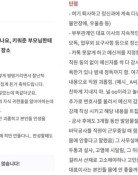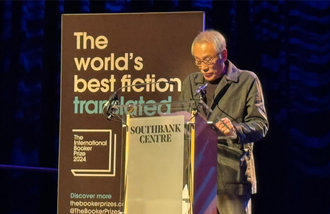[Editorial] The New PMs Priorities
President Roh Moo-hyun has appointed lawmaker Han Myeong-Sook of the ruling Uri Party as prime minister. If she is confirmed by the National Assembly, she will become Koreas first-ever woman prime minister, which is meaningful in its own right.
Her appointment has drawn a favorable response, in part because she served as minister of gender equality and minister of environment, and because of her previous flexible attitudes on nationally pressing issues such as the opening up of the rice market and the Saemangeum Reclamation Project. This is surprising, considering that she was brought in from outside the government. It is also noteworthy that President Roh made an effort to pick a prime minister that the opposition party would find palatable.
However, before the National Assembly confirms her appointment, a few issues should be resolved. First, she should disaffiliate herself from the ruling party, as required by the opposition party. It is unprecedented for both the prime minister who oversees election administration, and the justice minister, who leads investigations into election law violations, to hold ruling party memberships with the local election just two months away. She should leave the party in order to ensure a fair election and to build the publics confidence in her ability to run state affairs independent of the ruling partys interests.
There is also a need for Han to explain the left-leaning viewpoint that she has expressed on certain issues. She signed the bill to abolish the National Security Law in 2004. Regarding the passage of the North Korean Human Rights Act in the U.S. Congress, she argued, It is hard to improve human rights in North Korea by isolating and putting pressure on North Korea. With regard to North Koreas dollar counterfeiting, she also appeared defensive of North Korea, saying, The U.S. is putting a damper on the reconciliatory mood without presenting clear evidence. When the Past Injustices Investigation Law was pending before the National Assembly last year, she abstained from voting, saying, It is a retreat from the original proposal of the ruling party.
Balancing ones perception of history and the current times is required of a prime minister, who oversees state affairs. In that sense, Han has to make her ideological orientation and thoughts on pending issues, both domestic and foreign, clear. The fact that her husband, Park Seong-jun, a professor at the Sungkonghoe University, spent 13 years in jail after being involved in the Unification and Revolution Party scandal in 1968 also requires explanation on her part.
Back then, 158 individuals were arrested on charges that they formed an underground organization aimed at toppling the government of the Republic of Korea. The core leadership of the party was related to North Korea. After Kim Jong-tae, the mastermind of the Unification and Revolution Party, was executed, North Korea even conferred the title of hero onto him. Overall, there is a nearly unanimous assessment that the Unification and Revolution Party was a home-grown communist organization in the least. Recently, Professor Park told Dong-A Ilbo that he would petition for a retrial, saying, I neither joined the Unification and Revolution Party, nor was won over by the party. However, he avoided giving a clear explanation of his ideological pilgrimage. It is also questionable why Professor Park made his intention to petition for a retrial known during the confirmation process for a new prime minister.
President Roh also has to make it clear whether he views the appointment of Han Myeong-Sook, of whose husband was allegedly involved in a leftist organization, as totally unrelated to the nations identity. Not only that, he should make it clear whether the inter-Korean relationship was a consideration factor when he decided to nominate Han. Unlike a legislator or a minister, who becomes prime minister has a lot to say for this nation.







